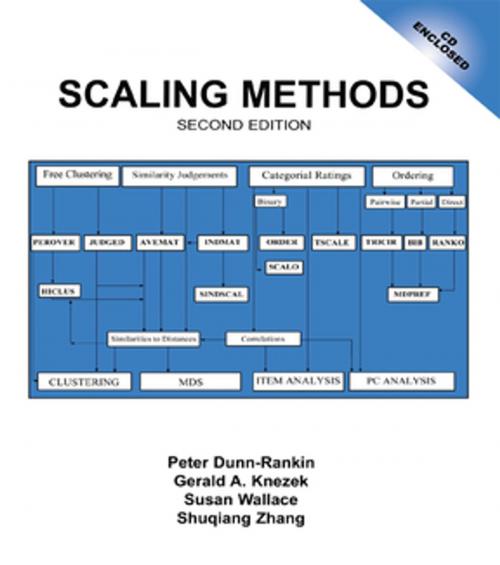Scaling Methods
Nonfiction, Health & Well Being, Psychology, Testing & Measurement, Business & Finance, Marketing & Sales, Research, Consumer Behaviour| Author: | Peter Dunn-Rankin, Gerald A. Knezek, Susan R. Wallace, Shuqiang Zhang | ISBN: | 9781135692940 |
| Publisher: | Taylor and Francis | Publication: | April 4, 2014 |
| Imprint: | Psychology Press | Language: | English |
| Author: | Peter Dunn-Rankin, Gerald A. Knezek, Susan R. Wallace, Shuqiang Zhang |
| ISBN: | 9781135692940 |
| Publisher: | Taylor and Francis |
| Publication: | April 4, 2014 |
| Imprint: | Psychology Press |
| Language: | English |
Scaling Methods is written for professionals in the behavioral sciences who analyze data that results from subjective responses. Other books on scaling attitudes or measuring perceptions focus on the psychometrician's view of measurement. This book focuses on the users' view by concentrating on effective ways to analyze data rather than the mathematical details of how each program works. The methods included handle the majority of data analysis problems encountered and are accompanied by a software solution. Each chapter features the theory surrounding that methodology, an example, a real-world application, and a computer solution.
This book introduces the major uni- and multi-dimensional scaling method techniques most common in educational, social, and psychological research. Using four primary methods of data collection--ordering, categorical rating, free clustering, and similarity judgments--Scaling Methods, Second Edition explains how such data can be represented in ways that illustrate relationships among the data and help reveal underlying dimensional structures. Each method serves as an independent unit so readers can pick and choose from a variety of easy-to-use procedures and more advanced techniques. The new edition features a new chapter on order analysis and a CD-ROM that provides stand-alone, as well as SAS supported demonstrations of multi-dimensional scaling techniques, plus programs to get raw data into matrix form.
The text is written for researchers, practitioners, and advanced students in education and the social and behavioral sciences interested in analyzing data resulting from subjective responses, especially in the measurement of attitudes. Each chapter is self-contained making this an excellent resource for use in the classroom or as a self-study tool. A first course in statistics is a helpful prerequisite.
Scaling Methods is written for professionals in the behavioral sciences who analyze data that results from subjective responses. Other books on scaling attitudes or measuring perceptions focus on the psychometrician's view of measurement. This book focuses on the users' view by concentrating on effective ways to analyze data rather than the mathematical details of how each program works. The methods included handle the majority of data analysis problems encountered and are accompanied by a software solution. Each chapter features the theory surrounding that methodology, an example, a real-world application, and a computer solution.
This book introduces the major uni- and multi-dimensional scaling method techniques most common in educational, social, and psychological research. Using four primary methods of data collection--ordering, categorical rating, free clustering, and similarity judgments--Scaling Methods, Second Edition explains how such data can be represented in ways that illustrate relationships among the data and help reveal underlying dimensional structures. Each method serves as an independent unit so readers can pick and choose from a variety of easy-to-use procedures and more advanced techniques. The new edition features a new chapter on order analysis and a CD-ROM that provides stand-alone, as well as SAS supported demonstrations of multi-dimensional scaling techniques, plus programs to get raw data into matrix form.
The text is written for researchers, practitioners, and advanced students in education and the social and behavioral sciences interested in analyzing data resulting from subjective responses, especially in the measurement of attitudes. Each chapter is self-contained making this an excellent resource for use in the classroom or as a self-study tool. A first course in statistics is a helpful prerequisite.















